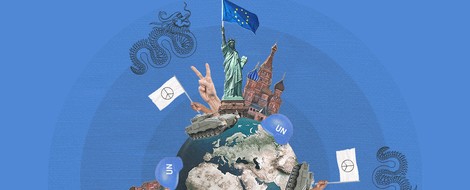Your podcast discovery platform
Curious minds select the most fascinating podcasts from around the world. Discover hand-piqd audio recommendations on your favorite topics.

piqer for: Technology and society Global finds Globalization and politics
Emran Feroz is an Afghan-Austrian journalist currently based in Stuttgart, Germany. He is regularly writing from Afghanistan, often focusing on the Middle East, Central Asia, drone warfare, refugee policies and human rights. Emran is writing in both German and English. His work has already appeared in international media outlets such as Al Jazeera, The Intercept, Alternet, The Atlantic or the New York Times and in various German and Austrian news papers and magazines.
The Rohingya, Other Outsiders And The Construct Of Ethnic Identity
Worth-reading piece — especially in these times.
Briefly, the author describes how the Rohingya in Burma became the "world's most persecuted minority", as the United Nations called them.
And it all started with British colonialism in the 19th and 20th century. Then, the British literally invented different ethnic groups to divide and conquer, also in Burma.
Ethnicities are fluid, yet European empires and post-colonial states sought to name and thus delimit them from historical flux. When the British arrived in the state called Burma or Myanmar after the Bamar, the dominant group, they set about categorising cultures and races, considering the two categories to be almost interchangeable. In the 1931 census the British named 139 ethnic groups. By 1982, independent Burma’s military junta had reduced this to 135 ‘national races’ qualifying for citizenship.
Brilliantly, the author deconstructs the narrative of ethnicity as many people know it and uses himself as an example.
My mother is English and my father Syrian, so you’d expect at least two locations to show. As it happens, I contain Western European, Caucasian, Southern European, Middle Eastern, Irish and Iberian, with small amounts of Scandinavian, North African and South Asian. This demonstrates not only that I am a mixture, but that my parents are too, that everyone is. It reminds us that ethnic distinctions are accidents of cultural history rather than markers of race or even of family purity. It means very similarly mixed blood flows in the veins of those who consider themselves in nationalist terms, for instance, as distinct Arabs, Kurds or Turks.
Today the Burmese state denies the existence of the Rohingya as a community. In recent weeks at least 620,000 Rohingya have been driven from their homes. Villages have been torched, women gang-raped, untold numbers have been hacked or burnt to death.
It was just pure horror, and it still is.
